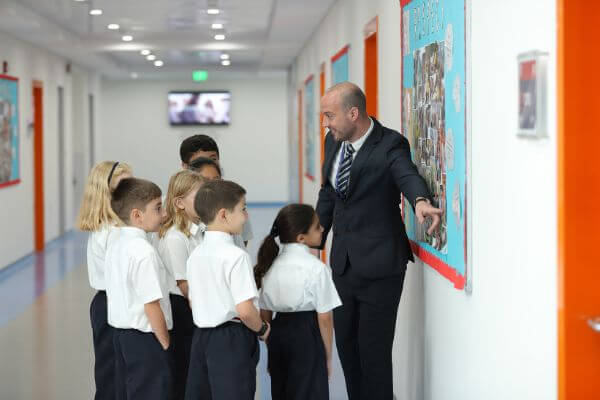Primary education is a critical phase in a child’s academic journey, laying the foundation for future learning and personal development. As a parent, understanding this phase can be both exciting and challenging. This guide aims to provide insights into key aspects of primary education, helping parents better understand and support their child’s educational experience. Find here the best American curriculum schools in Qatar.
The importance of primary education:
Primary education serves as the cornerstone of a child’s learning journey, fostering essential skills and knowledge. It is a time when children develop fundamental literacy and numeracy skills, critical thinking abilities, and social interactions that contribute to their overall growth.
Curriculum overview:
Familiarizing yourself with the primary school curriculum is crucial. Explore subjects such as mathematics, language arts, science, and social studies to understand what your child will be learning. This knowledge enables you to actively engage in your child’s education, reinforcing classroom lessons at home and supporting their academic progress.
Role of teachers and parent-teacher collaboration:
Teachers play a crucial role in a child’s primary education. Establish open lines of communication with your child’s teachers to stay informed about their academic performance, behavior, and any challenges they may be facing. Attend parent-teacher conferences to discuss progress and collaborate on strategies for improvement.
Homework and study habits:
Homework is a common aspect of primary education, promoting independent learning and reinforcing classroom concepts. Create a conducive study environment at home, establish a routine, and provide guidance when needed. Instilling good study habits early sets the stage for success in later academic pursuits.
Assessment and feedback:
Understand the various forms of assessments used in primary education, including tests, projects, and teacher evaluations. Regularly review your child’s assessments, celebrating achievements, and addressing areas for improvement. Use feedback from teachers as a tool for constructive discussions on how to enhance your child’s learning experience.
Adapting to learning styles:
Every child learns differently. Recognize your child’s learning style – whether visual, auditory, or kinesthetic – and collaborate with teachers to tailor approaches that cater to their individual needs. This personalized approach can significantly impact their understanding and retention of information.
Steering primary education is a collaborative effort between parents, teachers, and students. By actively engaging in your child’s educational journey, understanding the curriculum, and fostering a supportive environment, you contribute to a solid foundation that will serve them well in their academic and personal growth.



